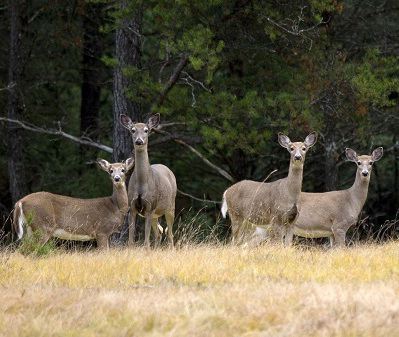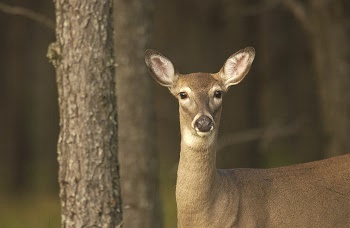Michigan: DNR Reports CWD-Positive Deer
A 2-year-old, hunter-harvested doe from Hamilton Township, in Gratiot County, Michigan, recently tested positive for chronic wasting disease – the second confirmed CWD-positive wild deer from that county. The Michigan Department of Natural Resources said that tissue samples were sent to the Michigan State University Veterinary Diagnostic Laboratory for confirmation.
Gratiot County’s first CWD-positive deer was discovered in late 2018. CWD is a fatal neurological disease that affects white-tailed deer, elk and moose. To date, the disease also has been confirmed in Clinton, Dickinson, Eaton, Ingham, Ionia, Jackson, Kent and Montcalm counties.
“When we find CWD a few townships over from a prior detection in the same county, it becomes increasingly important to discover if and where additional cases might be within that county,” said DNR deer and elk specialist Chad Stewart. “In light of this new detection, we ask hunters in southeastern Gratiot and southwestern Saginaw counties, especially, to have their deer tested this year.”
Nearby deer check stations and drop boxes are available at the DNR field office in St. Charles, McNabb Park in Ithaca and Bellingar Packing in Ashley.
“The DNR sets surveillance goals – basically, a number of deer tested in a particular area – to understand the scale of infection in the local deer herd,” Stewart said. “The closer we come to meeting these goals, the better we can learn about where chronic wasting disease exists in Michigan. That’s why we encourage hunters to get deer tested, especially in areas where we haven’t yet met surveillance goals.”
CWD is not common among deer in Michigan, and the Department of Natural Resources encourages hunters to assist in disease surveillance.
Stewart said some of easiest ways hunters can help address CWD are to keep hunting throughout the remaining deer seasons, dispose of leftover parts in the trash and, if possible, take additional does in the Lower Peninsula’s CWD areas.
Deer check stations and drop boxes will be open throughout the deer hunting seasons, while the DNR Wildlife Disease Laboratory and partner Michigan State University Veterinary Diagnostic Laboratory will continue processing and testing deer as hunting seasons continue. For check station locations and hours, visit Michigan.gov/DeerCheck.
Updated testing results, including the goal per county, are available at Michigan.gov/CWD in the Statewide Testing Results section.
To date, there have been no reported cases of CWD infection in people. However, as a precaution, the U.S. Centers for Disease Control and Prevention recommend that infected animals not be consumed as food by either humans or domestic animals.




